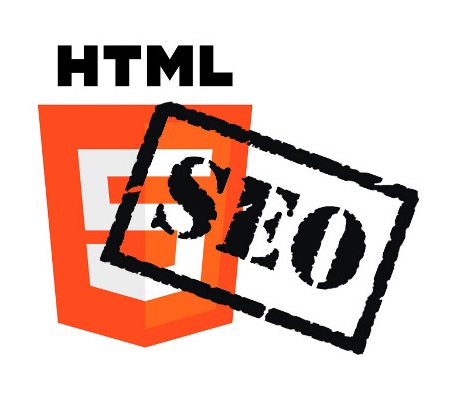
In the past, social media and SEO (Search Engine Optimisation) were two very different, very separate things. Social media was a way to write funny and annoying statuses, SEO was a way to make search engines like you. Nowadays, however, social media and SEO are well and truly joined at the hip.
Everything is pointing towards the coupling of social media and SEO, but if you aren't too sure on how to go about integrating your campaigns, you could find yourself lagging behind still. This is the case for a lot of SEO professionals that are only just jumping on the social media bandwagon.
The integrated first began when Google set up its very own social media platform, Google Plus, way back when. This might be old news to some of you, especially if you have already decided to discount it as a "bad" social media site. Google is the most powerful search engine out there though, so what Google wants, Google gets.
The search engine superpower has even confirmed that social trends influence search results, as the whizz kids at Google have been working on tweaking the algorithm to show people what is trending at the moment, not just what SEO's have managed to squeeze into the SERPs (Search Engine Results Pages). Facebook and Bing were also recently married, with the implementation of Graph Search. This is Facebook's very own search engine, where you can search for pretty much anything you want. Some examples include:
- Friends that like "The Beatles".
- Friends that like "The Beatles" and visited London in 2009.
- Friends that like "The Beatles", visited London in 2009 and have cats.
Yes, it really is that specific. And, if it can't find what you're looking for (because you have no friends that listen to "Hey Jude" on repeat, love London an cats), then it will produce a plethora of Bing search results that are closely related.
No matter what you Google nowadays, you can almost guarantee that a number of YouTube videos will pop up, or even some Facebook profiles or Twitter pages.
So, if you want to get started on your integration, here's how:
1. Get on top of social media
Before you integrate, you need to be fully aware of how social media works. Ensure your social media presence is active and that you have profiles on all of the top social media platforms. If you don't know how to do this, employ someone that does.
2. Link your sites and your social media
You can transform fans into shoppers and vice versa by making sure you have social media buttons on your website. Make them big and bold, and consistently link to your site from your social profiles.
3. Make your content findable
Good content is the perfect viral tool, but only if it's easy to find. Again, social share buttons need to appear on your pages. That means on every single page, not just the main page.
4. SEO your content
Of course, keywords are always involved when it comes to SEO. If you want to create a super piece of content for your social media though, you'll need to ensure it's about what people are interested in. Dive into your analytics or run a keyword campaign to find out; then write your content.
5. Encourage people to get involved
Remember calls to action? Well, they're more important than ever now. If you want people to share your content or like your page, tell them to! Something as simple as "like this post if you loved it!" or "what did you think of this post?" will suffice.
About The Author: Lauren Belfield, 26, is a graduate from the University of Manchester who now works as a freelance writer specialising in Search Engine Optimisation. Lauren does lots of work currently for the well-known SEO Agency in Manchester, Lakestar Mccann.
Did you find this article helpful? Please let Lauren and myself know by leaving us your valued comments.
Would you like to guest post on the blog? Please use the Contact tab above to get in touch if you write business-related articles or articles on the topics of Internet Marketing, Affiliate Marketing, Social Media Marketing/Optimisation (SMO), Blogging, Search Engine Optimisation (SEO) or Search Engine Marketing (SEM).
If you found this or any of my other posts helpful, don't forget to share the posts to your favourite networks using the toolbar below or by using the "+1" and "Share" buttons located at the bottom of each post.
As ever, if you want to stay up to date with the latest blog posts, don't forget to follow via Google Friend Connect (button on sidebar), on NetworkedBlogs, via Email (maximum of one email per day), on Facebook and Google+ or by subscribing to our blog feed at:
http://feeds.feedburner.com/DereksHomeAndBusinessBlog
You can also follow me on Twitter @djones1509, Google+ and on Facebook at:
http://www.facebook.com/djones1509
https://plus.google.com/104849975941505117776
Until my next post on Wednesday on managing duplicate content and usability issues of an E-Commerce website, have a great week ahead!
© 2013. This article is DMCA protected. Republication is prohibited.
Everything is pointing towards the coupling of social media and SEO, but if you aren't too sure on how to go about integrating your campaigns, you could find yourself lagging behind still. This is the case for a lot of SEO professionals that are only just jumping on the social media bandwagon.
The integrated first began when Google set up its very own social media platform, Google Plus, way back when. This might be old news to some of you, especially if you have already decided to discount it as a "bad" social media site. Google is the most powerful search engine out there though, so what Google wants, Google gets.
The search engine superpower has even confirmed that social trends influence search results, as the whizz kids at Google have been working on tweaking the algorithm to show people what is trending at the moment, not just what SEO's have managed to squeeze into the SERPs (Search Engine Results Pages). Facebook and Bing were also recently married, with the implementation of Graph Search. This is Facebook's very own search engine, where you can search for pretty much anything you want. Some examples include:
- Friends that like "The Beatles".
- Friends that like "The Beatles" and visited London in 2009.
- Friends that like "The Beatles", visited London in 2009 and have cats.
Yes, it really is that specific. And, if it can't find what you're looking for (because you have no friends that listen to "Hey Jude" on repeat, love London an cats), then it will produce a plethora of Bing search results that are closely related.
No matter what you Google nowadays, you can almost guarantee that a number of YouTube videos will pop up, or even some Facebook profiles or Twitter pages.
So, if you want to get started on your integration, here's how:
1. Get on top of social media
Before you integrate, you need to be fully aware of how social media works. Ensure your social media presence is active and that you have profiles on all of the top social media platforms. If you don't know how to do this, employ someone that does.
2. Link your sites and your social media
You can transform fans into shoppers and vice versa by making sure you have social media buttons on your website. Make them big and bold, and consistently link to your site from your social profiles.
3. Make your content findable
Good content is the perfect viral tool, but only if it's easy to find. Again, social share buttons need to appear on your pages. That means on every single page, not just the main page.
4. SEO your content
Of course, keywords are always involved when it comes to SEO. If you want to create a super piece of content for your social media though, you'll need to ensure it's about what people are interested in. Dive into your analytics or run a keyword campaign to find out; then write your content.
5. Encourage people to get involved
Remember calls to action? Well, they're more important than ever now. If you want people to share your content or like your page, tell them to! Something as simple as "like this post if you loved it!" or "what did you think of this post?" will suffice.
About The Author: Lauren Belfield, 26, is a graduate from the University of Manchester who now works as a freelance writer specialising in Search Engine Optimisation. Lauren does lots of work currently for the well-known SEO Agency in Manchester, Lakestar Mccann.
Did you find this article helpful? Please let Lauren and myself know by leaving us your valued comments.
Would you like to guest post on the blog? Please use the Contact tab above to get in touch if you write business-related articles or articles on the topics of Internet Marketing, Affiliate Marketing, Social Media Marketing/Optimisation (SMO), Blogging, Search Engine Optimisation (SEO) or Search Engine Marketing (SEM).
If you found this or any of my other posts helpful, don't forget to share the posts to your favourite networks using the toolbar below or by using the "+1" and "Share" buttons located at the bottom of each post.
As ever, if you want to stay up to date with the latest blog posts, don't forget to follow via Google Friend Connect (button on sidebar), on NetworkedBlogs, via Email (maximum of one email per day), on Facebook and Google+ or by subscribing to our blog feed at:
http://feeds.feedburner.com/DereksHomeAndBusinessBlog
You can also follow me on Twitter @djones1509, Google+ and on Facebook at:
http://www.facebook.com/djones1509
https://plus.google.com/104849975941505117776
Until my next post on Wednesday on managing duplicate content and usability issues of an E-Commerce website, have a great week ahead!
© 2013. This article is DMCA protected. Republication is prohibited.






